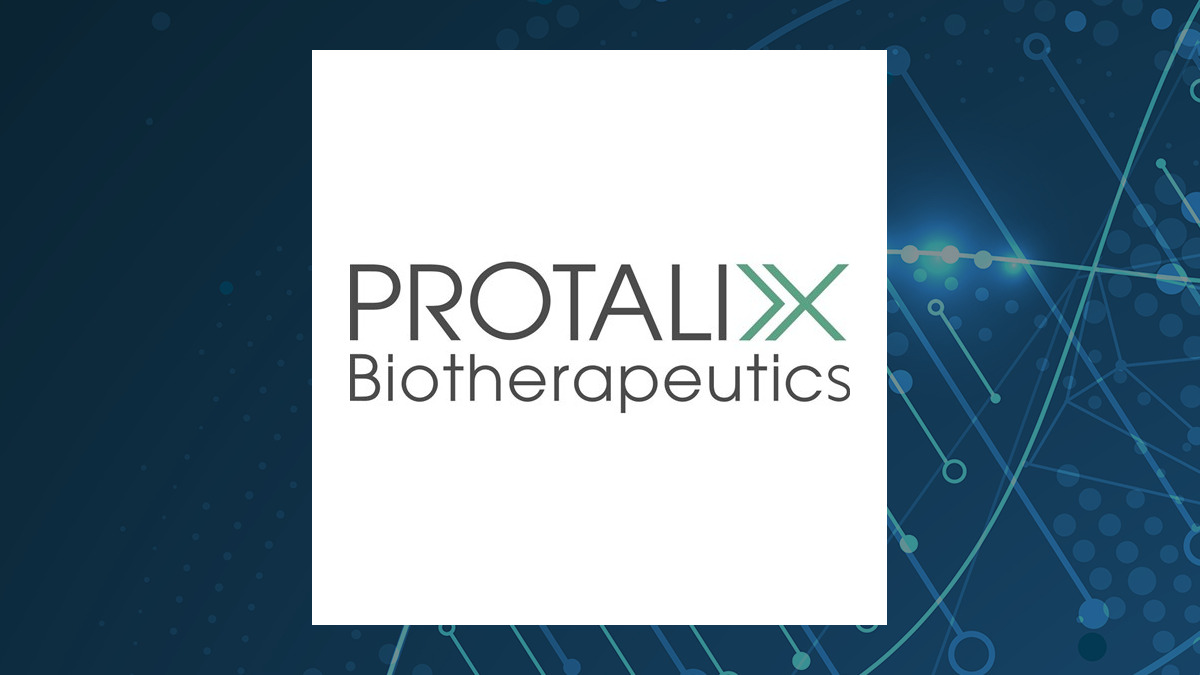Poseida Therapeutics (NASDAQ:PSTX – Get Free Report) and Protalix BioTherapeutics (NYSE:PLX – Get Free Report) are both small-cap medical companies, but which is the better investment? We will contrast the two companies based on the strength of their analyst recommendations, risk, institutional ownership, dividends, profitability, earnings and valuation.
Volatility and Risk
Poseida Therapeutics has a beta of 0.53, suggesting that its share price is 47% less volatile than the S&P 500. Comparatively, Protalix BioTherapeutics has a beta of 0.78, suggesting that its share price is 22% less volatile than the S&P 500.
Analyst Ratings
This is a summary of recent ratings and target prices for Poseida Therapeutics and Protalix BioTherapeutics, as reported by MarketBeat.com.
| Sell Ratings | Hold Ratings | Buy Ratings | Strong Buy Ratings | Rating Score | |
| Poseida Therapeutics | 0 | 0 | 3 | 0 | 3.00 |
| Protalix BioTherapeutics | 0 | 0 | 1 | 0 | 3.00 |
Insider and Institutional Ownership
46.9% of Poseida Therapeutics shares are owned by institutional investors. Comparatively, 16.5% of Protalix BioTherapeutics shares are owned by institutional investors. 2.9% of Poseida Therapeutics shares are owned by company insiders. Comparatively, 5.0% of Protalix BioTherapeutics shares are owned by company insiders. Strong institutional ownership is an indication that hedge funds, endowments and large money managers believe a company is poised for long-term growth.
Earnings and Valuation
This table compares Poseida Therapeutics and Protalix BioTherapeutics’ revenue, earnings per share and valuation.
| Gross Revenue | Price/Sales Ratio | Net Income | Earnings Per Share | Price/Earnings Ratio | |
| Poseida Therapeutics | $64.70 million | 5.92 | -$123.43 million | ($1.19) | -3.32 |
| Protalix BioTherapeutics | $59.65 million | 1.41 | $8.31 million | $0.04 | 28.63 |
Protalix BioTherapeutics has lower revenue, but higher earnings than Poseida Therapeutics. Poseida Therapeutics is trading at a lower price-to-earnings ratio than Protalix BioTherapeutics, indicating that it is currently the more affordable of the two stocks.
Profitability
This table compares Poseida Therapeutics and Protalix BioTherapeutics’ net margins, return on equity and return on assets.
| Net Margins | Return on Equity | Return on Assets | |
| Poseida Therapeutics | -131.95% | -97.36% | -38.88% |
| Protalix BioTherapeutics | 11.48% | 19.48% | 7.82% |
Summary
Protalix BioTherapeutics beats Poseida Therapeutics on 9 of the 13 factors compared between the two stocks.
About Poseida Therapeutics
Poseida Therapeutics, Inc., a clinical-stage biopharmaceutical company, focuses on developing therapeutics for patients with high unmet medical needs. The company's development candidates for Heme Malignancies includes P-BCMA-ALLO1, which is in Phase I trial to treat patients with relapsed/refractory multiple myeloma; P-CD19CD20-ALLO1, which is in Phase I trial for treating B cell malignancies and other autoimmune diseases; P-BCMACD19-ALLO1, an allogeneic, off-the-shelf CAR-T product candidate in preclinical development for treating multiple myeloma; and P-CD70-ALLO1 under preclinical development to treat hematological indications. It is also involved in the development of P-MUC1C-ALLO1 that is in Phase I trial for treating a range of solid tumors, including breast, colorectal, lung, ovarian, pancreatic, and renal cancers; P-PSMA-ALLO1, an autologous chimeric antigen receptor T cell (CAR-T) product candidate that is in preclinical development for the treatment of patients with metastatic castrate resistant prostate cancer (mCRPC); and P-PSMA-101, an allogeneic CAR-T product candidate under Phase 1 clinical trial for treating mCRPC. In addition, the company engages in the development of P-FVIII-101, a clinical stage liver-directed gene therapy for the in vivo treatment of hemophilia A; P-OTC-101, a clinical stage liver-directed gene therapy for the in vivo treatment of ornithine transcarbamylase deficiency; and P-PAH-101, a clinical stage liver-directed gene therapy for the in vivo treatment of phenylketonuria. It has a research collaboration and license agreement with F. Hoffmann-La Roche Ltd, and Hoffmann-La Roche Inc. The company was incorporated in 2014 and is headquartered in San Diego, California.
About Protalix BioTherapeutics
 Protalix BioTherapeutics, Inc., a biopharmaceutical company, engages in the development, production, and commercialization of recombinant therapeutic proteins based on its proprietary ProCellEx plant cell-based protein expression system in the United States, Australia, Canada, Israel, Brazil, Russia, Turkey, and internationally. The company offers Elelyso for the treatment of Gaucher disease; and Elfabrio for the treatment of adult patients with a confirmed diagnosis of Fabry disease. It is also developing PRX-115, a plant cell-expressed recombinant PEGylated Uricase which is in Phase I trial for the treatment of gout; and PRX-119, a plant cell-expressed PEGylated recombinant human DNase I product candidate that is in preclinical phase for the treatment of NETs-related diseases. The company has agreements and partnerships with Pfizer; Fundação Oswaldo Cruz; and Chiesi Farmaceutici S.p.A. The company was incorporated in 1993 and is headquartered in Karmiel, Israel. Protalix BioTherapeutics, Inc. is a subsidiary of Protalix Ltd.
Protalix BioTherapeutics, Inc., a biopharmaceutical company, engages in the development, production, and commercialization of recombinant therapeutic proteins based on its proprietary ProCellEx plant cell-based protein expression system in the United States, Australia, Canada, Israel, Brazil, Russia, Turkey, and internationally. The company offers Elelyso for the treatment of Gaucher disease; and Elfabrio for the treatment of adult patients with a confirmed diagnosis of Fabry disease. It is also developing PRX-115, a plant cell-expressed recombinant PEGylated Uricase which is in Phase I trial for the treatment of gout; and PRX-119, a plant cell-expressed PEGylated recombinant human DNase I product candidate that is in preclinical phase for the treatment of NETs-related diseases. The company has agreements and partnerships with Pfizer; Fundação Oswaldo Cruz; and Chiesi Farmaceutici S.p.A. The company was incorporated in 1993 and is headquartered in Karmiel, Israel. Protalix BioTherapeutics, Inc. is a subsidiary of Protalix Ltd.
Receive News & Ratings for Poseida Therapeutics Daily - Enter your email address below to receive a concise daily summary of the latest news and analysts' ratings for Poseida Therapeutics and related companies with MarketBeat.com's FREE daily email newsletter.
